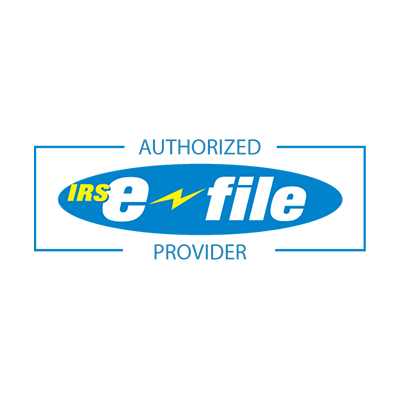As an owner operator, staying on top of tax laws and regulations while maintaining a business can be exhausting, especially when you’re doing it by yourself. There are a lot of owner operator taxes and regulations that you have to keep track of, like claiming deductions, reporting your income, and calculating self-employment tax. All of these moving parts can pile up and quickly become overwhelming, especially if you’re also focused on running a business and managing day-to-day operations. In this article, we’ll provide some tips and strategies for navigating the complex matter of owner operator taxes. With a little organization and the right processes in place, you’ll see that this time-consuming responsibility can be much more manageable. Let’s begin!
Maintain Accurate Records
Organized, accurate records are everything to the IRS—and they should be to you, too! It’s vital that you keep detailed records of your business income and expenses. The best way to do this is by maintaining your bookkeeping daily, recording what you spent, why you spent it, where and when you spent it. You’ll also want to save any receipts, invoices, bank statements, and any other pertinent physical records, and do a close-out at the end of every month to make sure all money coming in and going out has been accounted for. If you choose to use software to keep track of your business income and expenses, make sure you’ll be able to easily access it wherever the job takes you.
Our final piece of advice for maintaining accurate records for owner operator taxes? Keep your personal and business expenses separate from each other—once they start mixing together, your job gets a lot harder. The easiest way to accomplish this is by having a credit card specifically for business so that business expenses are all on their own statement.
Stay On Top of Your Taxes
As an owner operator, you always need to stay on top of things like truck leases and maintenance, loads, and renewing your CDL. Don’t let taxes slip through the cracks! While trucking companies automatically deduct taxes from drivers’ paychecks, self-employed truckers do not, and owner operators need to pay self-employment taxes every quarter directly to the IRS. Currently, self-employment taxes are estimated at a rate of 15.3% – that’s 12.4% for Social Security, and 2.9% for Medicare.
You’ll also need to keep an eye on income taxes. For drivers employed by companies, these taxes are estimated and withheld from your paycheck based on W-2 filings. Owner operators, on the other hand, are independently responsible for estimation and payment of these taxes on the state and federal levels.
Maximize Tax Deductions
Something that can save you money when filing owner operator taxes is maximizing your tax deductions. When you maintain accurate records, it makes scoring deductions that much easier. While company-employed truck drivers that receive wages reported on a W-2 can no longer deduct things such as mileage and travel on their tax returns, owner operators can claim business expenses as long as they complete a Schedule C to report income and expenses.
Drivers who work as independent contractors can claim a variety of tax deductions on vehicle-related costs. These include things like batteries, tires, cleaning supplies, repairs and parts, insurance premium payments, loan interest, and fuel.
Equipment used for business purposes that depreciates over time can also be deducted, including computers, office equipment, furniture, trucks, and trailers. For trucks and trailers, trucks with an attached unit for cargo depreciate over five years, while 5th wheel tractors are depreciated over a period of three years.
Owner operators are also allowed by the IRS to deduct costs under the ‘travel expenses’ category, covering the cost of meals, accommodations, parking, and tolls. In order to be eligible to write off these costs, your work must require that you travel away from your tax home for a period of time ‘substantially longer’ than the length of a single workday, and you also must be sleeping away from home while traveling for work purposes.
To be sure you actually get all the tax deductions you qualify for, it’s smart to keep your personal and business bank accounts separate. Mixing the two will give the IRS pause, jeopardizing your deductions. And when in doubt, consult a tax professional. They’ll know what to do to ensure you claim all the deductions you qualify for.
Stay IRS Compliant
Always stay as compliant as you can with any IRS rules and regulations. In addition to maximizing deductions, you want to keep penalties and fines at a minimum!
If you don’t pay your taxes, penalties, and additions to tax or interest by their due date, the IRS will hit you with a fee for underpayment interest, even if you file an extension. The interest charge starts on the due date of whatever amount you owe and will continue to accrue until your balance is paid in full.
You also want to avoid getting hit with the Failure to File Penalty, which applies if you don’t file your tax return by its due date. The penalty amount is 5% of the unpaid taxes for each month or part of a month that a tax return is overdue, but won’t exceed 25% of unpaid taxes. If both Failure to File and Failure to Pay penalties are both applied in the same month, the Failure to File will be reduced by the amount of the Failure to Pay for that month, with a combined penalty of 5% for a month or part of a month that the return was late. If you still have not paid what you owe after a period of five months, the Failure to File will max out, but Failure to Pay will continue until the tax is paid, up until it hits the ceiling of 25% of the unpaid tax.
If your return is late by a period of over 60 days, the minimum Failure to File penalty is $435, or 100% of the tax required by the return, determined by whichever dollar amount is smaller.
Don’t Forget to Pay the HVUT
There’s a lot of plates to keep spinning when it comes to staying on top of owner operator taxes, and you don’t want to leave any box unchecked or necessary form unfiled. That’s why i2290 makes filing Form 2290 and paying the Heavy Vehicle Use Tax so easy! Just create an account with us, answer some quick questions about your vehicles and business, and you’ll receive an IRS-stamped Schedule 1 in no time at all, and it’ll always be easy to find online so it’s accessible no matter where you go. Create an account with i2290 today to get started, and check one item off your to-do list!
Special note: This article is for general purposes, and is not intended to provide, and should not be relied on for tax, legal, investment, or accounting advice. The best way to ensure you’re properly filing and paying appropriate taxes is by following IRS regulations and consulting with a tax professional.


